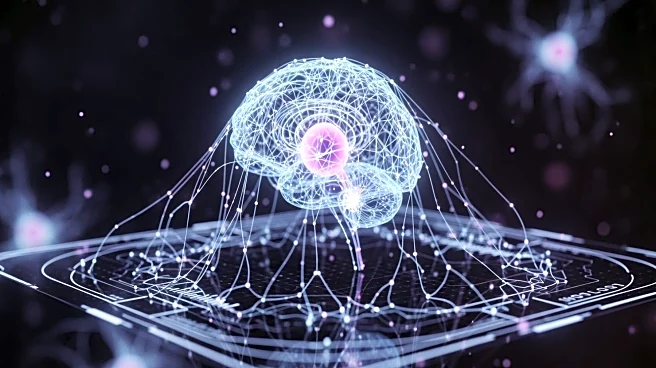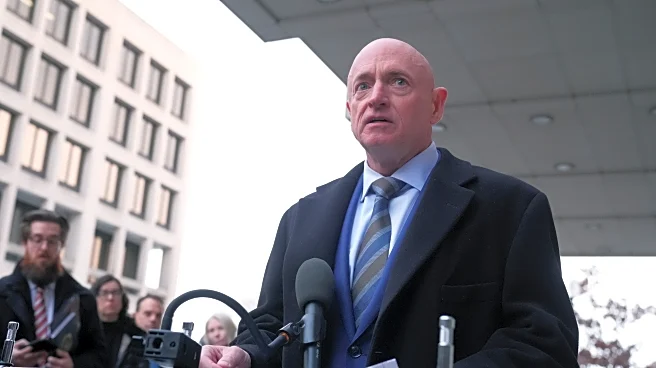What's Happening?
A recent study published in Neuropsychologia has revealed subtle but measurable differences in brain activity among children who have experienced trauma. The research, led by Zinia Pervin and colleagues,
focused on typically developing children aged 9 to 15, examining how non-abuse-related trauma affects brain function during tasks requiring sustained attention and impulse control. Utilizing magnetoencephalography (MEG), the study found that children with higher trauma exposure showed distinct patterns of neural activity, particularly in regions associated with executive function such as the anterior cingulate cortex and prefrontal cortex. These differences varied by sex, with boys and girls exhibiting different response timings and amplitudes. Despite these neural changes, the study noted no significant differences in task performance between high-trauma and low-trauma groups.
Why It's Important?
The findings of this study are significant as they provide insight into how trauma can affect brain development in children, even when behavioral symptoms are not apparent. Understanding these neural changes is crucial for identifying potential markers that could flag children at risk for future difficulties with executive functioning. This research highlights the importance of considering trauma exposure in typically developing youths, which could inform interventions aimed at mitigating long-term mental health issues. The study also underscores the need for sex-specific approaches in addressing trauma-related neural changes, as boys and girls may experience different impacts at the neural level.
What's Next?
Future research is needed to explore the long-term effects of trauma on brain development. Longitudinal studies could help determine whether the neural differences observed persist into adulthood or are temporary. Additionally, incorporating clinical assessments and broader measures of trauma could clarify the relationship between early stress and later mental health outcomes. Combining MEG with other imaging techniques like MRI may provide a more comprehensive understanding of how trauma affects brain structure and function over time.
Beyond the Headlines
The study raises important ethical considerations regarding the assessment and treatment of trauma in children. It challenges the notion that trauma must be abuse-related to have significant effects on development, suggesting that even non-abuse-related trauma can lead to measurable changes in brain activity. This could influence how trauma is perceived and addressed in educational and clinical settings, advocating for a broader understanding of trauma's impact on child development.











